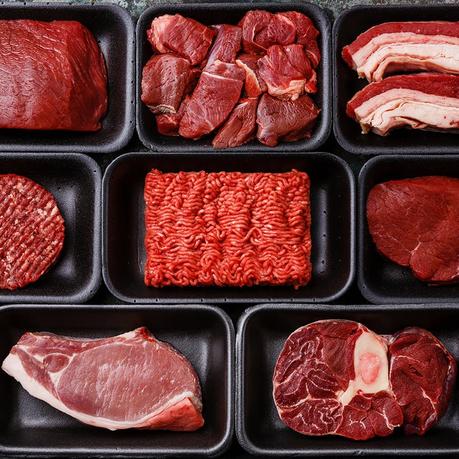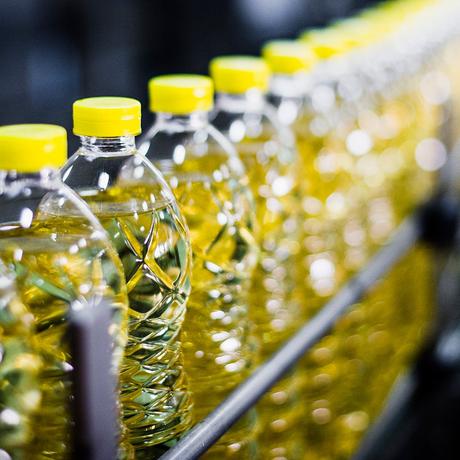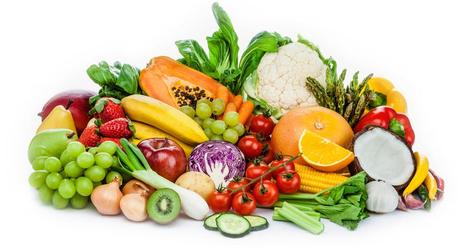2. Does dietary fat cause breast cancer?
Decades later, Doll's warning, cautioning against the over-interpretation of weak epidemiological associations between food and cancer, was completely ignored.
Dr. Walter Willett, an MD who holds a doctorate in epidemiology at the Harvard School of Public Health, attempted to prove the link between dietary fat and breast cancer from Doll's study by utilizing his now infamous 61-question dietary questionnaire in a large group of nearly 90,000 female nurses. The results were analyzed, and estimates of total fat, saturated fat, linoleic acid (a polyunsaturated fat found in vegetable oil), and cholesterol within the nurses' diets were calculated and compared with rates of medical issues, like cardiovascular disease and cancer.
Willett's group went on to publish three sets of findings on links between dietary fat and breast cancer. The first publication, titled Dietary Fat and the Risk of Breast Cancer, released in 1987, reported no association between dietary fat and breast cancer. In reality, the paper showed a trend of a decreased risk of breast cancer with higher rates of dietary fat consumption, but this was not statistically significant.
The scientists cautioned that the length of follow up of their initial study was possibly too short, or that even the lowest dietary fat levels were simply too high to lower the risk of breast cancer.
With nearly 15 years of follow up, a repeat analysis, now including women consuming less than 20% of their diet as fat (remember, this was after decades of endless low-fat recommendations), found that replacing dietary carbohydrates with fats, and subsequently increasing fatty food consumption by 5% was associated with a 4 percent lower incidence of breast cancer. In other words, they found the opposite of what they expected to find: dietary fat was NOT associated with increased rates of cancer, and if anything, was associated with decreased rates.
So, can we conclude that dietary fat actually protects us from breast cancer? Some would argue this from these studies, however, Willett's and the other population studies were all epidemiologic studies with very low hazard ratios which is likely random, or at best very weak evidence. The only statement we can make with certainty is that no significant data has ever shown an increased risk of breast cancer from eating fat. Further, there is as yet no clear relationship established between diet and breast cancer.
3. Does red and processed meat cause cancer?
Meat consumption has taken the lion's share of blame when it comes to a food with the potential to cause cancer. Most often, eating meat is linked to a purportedly higher risk of colon cancer specifically. However, much like Doll and Armstrong's worldwide epidemiologic study, the link has only been inconsistently shown in population studies.
Adding insult to injury, many sources reporting on the health issues of red meat and a potential link to cancer often quote a report from the World Health Organization's (WHO) International Agency for Research on Cancer (IARC). What is often missed is that this WHO report is no study at all, but rather the viewpoint of a group of individuals.
Furthermore, even the authors of the report describe that the few randomized trials available have found no link between red meat consumption and colon cancer. Several randomized studies have assessed the ability of a low-fat, high-fiber, and low red and processed meat diet to reduce precancerous adenomas, known as colon polyps. All revealed no reduction in polyps in the dietary intervention arms. Adding further insult to injury, these low-fat groups were randomized against a western diet arm, yet still revealed no benefit.
Adding further difficulties to this potential link is the fact that red meat and processed meat are entirely different entities and should not be conflated. For instance, a meal containing beef from grain-fed cows versus wild game meat results in a markedly different physiologic response, with the grain-fed meat increasing several markers of inflammation.
Furthermore, there are actually some compelling mechanisms revealed in animal studies that could (at least in theory) explain why charring or burning meat, which creates nitrosamines, could, once ingested, expose the bowels to carcinogens. However, this points toward burnt food as the carcinogen, and not necessarily meat or red meat.
The potential of burnt food to become carcinogenic in the colon is a major reason why the colon cancer-red meat link has been studied so vigorously. Yet, even this association has yielded a potential overall increased risk of colon cancer under 1%.
While we know that meat in the diet provides a plethora of vitamins and minerals, its relationship with cancer remains backed by weak and conflicting evidence. Meat contains a significant number of vitamins and nutrients to aid the body in repair and recovery. Thus, for those seeking a complete diet, purposefully excluding meat to reduce their risk of cancer is not backed by substantial evidence and could even lead to inadequate nutrition.
For more information on this topic, please check out our guide:

4. Do any foods cause any sort of cancer?
I use Willett's experience as an example here because it illustrates the incredible bias within the nutrition and medical community when it comes to cancer, and the many issues with attempting to link food and cancer:
- The link between dietary fat and cancer has been inconsistent from the start, with data potentially showing that fat was associated with a lower risk of breast cancer.
- Most studies assessing cancer and food are epidemiologic studies that rely on food frequency questionnaires, producing results that simply don't support the claims of causation or even strong association.
- Nearly all studies assessing different foods or macronutrients and their links with cancer reveal such small hazard ratios that it is impossible to say with certainty that this link is not from chance or another unknown relationship (like affluence in Doll's study).
Remember, even Doll strongly believed that these population-based correlations should only be taken as suggestions for further research and studies, or in other words, a starting point or hypothesis with a clean slate to be either proven or disproven.
Since Willett's initial massive study, numerous other studies have attempted to link dietary fat and breast and other cancers. Studies remain negative, and even Willett has publicly stated that "support for a major relationship between fat intake and breast cancer risk has weakened considerably as the findings from large prospective studies have become available," and he has even commented that a low-fat, high-carbohydrate diet may increase the risk of breast cancer for a portion of women.
Regardless of these issues, the 1990s brought us several hundred million-dollar studies to test a low-fat diet on several diseases, including cancer. The Woman's Health Initiative (WHI) randomized over 48,000 women to either a control arm or an intensive behavior modification group, which included a low-fat diet with plenty of fruits and vegetables and frequent motivational meetings.
Even though the low-fat group received countless interventions to improve their overall health, no difference in breast cancer was seen between the groups. In a similar study, known as the Women's Health Study, no link was found between dietary fat and colorectal cancer.
The repetitive failure to link breast cancer and fat intake should have taught us several important lessons. Epidemiologic studies are often all but worthless when it comes to evaluating risk factors for cancer. This is due to the long time it takes cancer to develop, the massive number of variables that impact its development, and difficulty randomizing individuals into long-term lifestyle studies.
The issues with epidemiologic studies and the back and forth media-frenzy of misleading headlines that they produce has been scientifically parodied in the study "Is everything we eat associated with cancer? A systematic cookbook review" which revealed that it is possible to find evidence for a positive or negative effect of most foods when it comes to population studies and cancer.
The following four levels of support are generally necessary to develop a strong link between certain foods or eating patterns and cancer:
- Population/epidemiologic study support
- Mechanistic support (i.e. a mechanism exists to explain the relationship)
- Animal study support
- Human randomized controlled trial support
It is humbling to note that all four of these levels have never been demonstrated for any eating patterns and any type of cancer.

5. How could foods cause cancer?
The idea that certain foods, which are required for life due to their nutrients, vitamins, and energy content, may cause cancer is a difficult one to swallow.
Foods are so essential; how can we even compare them with other known carcinogens like tobacco smoke or car exhaust? You may also notice that epidemiologic studies can attempt to link certain foods and behaviors with cancer, but without a full consideration of the mechanisms, any relationship identified is difficult to support.
A food could theoretically impact our risk of cancer only if it causes a tangible change within our body that would promote an environment that is conducive to a cell becoming cancerous.
The following mechanisms describe how foods could generally cause cancer:
- The food and/or cooking process could contain a carcinogen or chemical that can damage our cells or a part of the body. This repetitive damage could eventually leave this area more prone to cancer (much like repeated injury from cigarette smoke in the lining of the lungs).
- The food or cooking technique could contain a chemical or free radical that damages DNA, which can lead to the expression or mutations of genes that promote cellular replication, growth, and eventually cancer.
- The food or cooking technique could contain free radicals that attack our cells (either in general, or the cell membranes, DNA, or other cellular components) in a way that promotes unchecked cellular replication, the formation of a rogue cell, and eventually leads to cancer.
- The food could lead to a metabolic environment that makes the induction and growth of cancer cells more favorable, like obesity or type 2 diabetes. For example, in obesity, diabetes, or a diet that promotes elevated blood glucose and insulin, normal cells may receive messages that activate cellular growth and reproduction pathways that, over time, may call for their unrestrained growth and could increase the risk of eventual conversion to a cancerous cell. Such a growth stimulus has been described as a "Hallmark of Cancer."
These descriptions highlight how there is a lack of mechanistic connection between diet and cancer. This is important when considering the weak evidence pointing to a possible, but inconclusive, association between dietary patterns and cancer. A lack of credible mechanistic link means a causal relationship is less likely.
Furthermore, the fact that higher fat diets seem to decrease amounts of body fat, improve type 2 diabetes and insulin sensitivity, and improve overall metabolic status, it remains unclear how saturated fats could, at the same time, increase cancer. In a healthy low-carb, high-fat diet, there is no mechanistic explanation for fat contributing to cancer. But a mixed high-fat and high-carb diet certainly could start to have some mechanistic explanation as that mixed diet can lead to increased insulin, increased adipose, increased inflammation etc.
Furthermore, randomized studies in humans have supported this link, as multiple randomized studies revealed increases in cancer deaths and reduction in survival within groups consuming higher amounts of vegetable oil.
One randomized trial in humans revealed an increase in lung cancer and a doubling of cancer-related deaths in men randomized to a high vegetable oil diet. The differences were of borderline significance, but began to accelerate towards the end of the trial, potentially illustrating that the onset of cancer due to a lifestyle change can take years to develop.
Vegetable oils' possible link to cancer is a great example of the requirement to demonstrate multiple mechanisms that explain a potential cancerous impact of a food. For more information about vegetable oils, please check out our guide:

6. Do fruits and vegetables fight cancer?
While red meat has had the reputation of the dangerous dietary component for the past several decades, fruits and vegetables have been the lauded darling of most modern dietary recommendations, receiving praise as an anticancer food. The studies, however, have been less consistent and do not completely confirm the impeccable reputation of fruits and vegetables.
As with red meat and most foods, the relationship between fruits and vegetables and cancer is plagued by epidemiologic studies utilizing often-inaccurate food-frequency questionnaires and all of the other issues that accompany observational associations.
For instance, smokers, heavy drinkers, and individuals who rarely exercise - all three of which are risk factors for cancer - eat fewer vegetables than nonsmokers, moderate drinkers, and those who exercise. Unsurprisingly, these folks are much less healthy, but we cannot be sure that it is due to diets that lack fruit and vegetables. Along these lines, similar studies point to a lower risk of all-cause mortality in the vegetable eaters, but again, these numbers are plagued by confounding social issues.
Like most foods, studies are mixed, with some revealing a lower cancer risk, and others showing any difference to be minimal for the identical food. Furthermore, studies suggest that the anticancer benefit of vegetables is largest in heavy smokers and drinkers.
From a mechanistic view this is also reasonable, as many vegetables enhance our cellular ability to detoxify potentially cancerous chemicals. In other words, these vegetables may be working hard to offset the massive damage from these individuals' unhealthy behaviors, but the benefits are less robust or just aren't there for the rest of us who follow a reasonably healthy lifestyle.
In men, cruciferous vegetable consumption is associated with a decreased risk of prostate cancer.

Other data may suggest that when a food is eaten earlier in life it may be protective against breast cancer, but I think you are getting the point; the data is an inconsistent mess, and most studies don't indicate any conclusive link between diet and cancer.
Much like meat, the issues of the different types of vegetables and preparation of these vegetables may impact many of these studies. For instance, just as the negative impact of burnt meat may be offset by a benefit of meat consumption, the same could be possible for vegetables. Studies, however, have yet to assess this relationship, limiting data. As discussed above, randomizing individuals to a high fruit and vegetable diet did not reduce the incidence of precancerous colon polyps.
Additionally, the type of vegetable and growing conditions can largely affect the potentially beneficial chemicals present within the vegetable. For example, organosulfurs, compounds that promote cellular detoxification and antioxidant production, are found in onions, garlic, broccoli, cabbage, and other vegetables, but amounts vary considerably between varieties.
From a cancer standpoint, we can view vegetables as generally consisting of an array of vitamins, minerals, soluble and insoluble fiber, and an array of defensive chemicals to ward off predators. Assessing each of these components may provide some clues as to whether (and how) vegetables could decrease the risk of cancer.
In greater detail, I would suggest the following possibilities:
- Fibrous material in vegetables feeds and nurtures our bowel bacteria.
- Our normal bowel bacteria help to fight inflammation, detoxify potentially cancerous chemicals, and protect the lining of the bowels. Thus, aiding in their health could improve our health and lower the risk of cancer forming in the lining of our gastrointestinal tract.
- Bowel bacteria bind and metabolize potentially dangerous chemicals. For instance, the hydrocarbons in burnt food are metabolized by bowel bacteria, which may protect us from cancer.
- Feeding these bowel bacteria will help to increase their presence in our gut, further potentiating the breakdown of harmful chemicals like heterocyclic amines and polycyclic aromatic hydrocarbons, while converting the antioxidant promoting organosulfurs in cruciferous vegetables to their cancer-fighting byproducts.
- Bowel bacteria create butyrate from the fiber in vegetables. Animal studies have revealed that this conversion can reduce the risk of colon cancer via apoptosis, the systematic destruction and pruning of damaged cells that can become cancerous if left unchecked. Studies in humans, however, are limited.
- These same chemicals signal a warning sign to our cells, but instead of being fatal, simply increase our immune system and antioxidant response and also activate our detoxification systems. Animal studies have revealed the ability of sulforaphane from broccoli sprouts to block chemically-induced cancer. Studies in humans have revealed that cruciferous extracts can aid in the detoxification of carcinogenic tobacco smoke.
In summary, the research evidence for vegetables being protective from cancer is minimal. Some studies may suggest that green and cruciferous vegetables provide a potential benefit, but this relationship has not been fully elucidated.
Non-starchy vegetables provide a plethora of vitamins and nutrients. When eaten as part of a diet low in simple sugars or other harmful foods, these vegetables likely contribute to our health with very little, if any, risk. Furthermore, from a purely mechanistic point of view, there are plenty of ways in which vegetables could, at least in theory, lower our risk of cancer, especially for those of us living in urban settings or polluted settings with unavoidable exposure to carcinogenic chemicals on a daily basis.
7. What can we say with certainty?
Not nearly as much as we would like, unfortunately. Based on population studies, cellular mechanisms, and animal studies, we have some clues about the relationship between food intake and cancer risk. It seems that whatever diet successfully promotes avoiding excessive food intake, maintaining a healthy weight, and maintaining healthy levels of insulin, natural hormones and inflammatory markers is a good start.
At the same time, foods that increase cellular and DNA repair, promote carcinogen detoxification, and foster a healthy immune system, all mechanisms that have been shown to reduce the occurrence of cancer, would in theory be expected to lower the risk of cancer.
As discussed above and previously, a higher fat and lower-carbohydrate diet has been shown dozens of times in randomized studies to result in weight loss, lower insulin, and improved insulin sensitivity for individuals with type 2 diabetes or those with prediabetes. Thus, a low-carbohydrate diet with plenty of vegetables to help nurture bowel bacteria and detoxify potentially cancerous chemicals seems most prudent based on the limited available studies.
However, returning to Richard Doll - he left us with an important warning about the food-cancer connection before he died at in 2005 at age 92:
"Given the many weaknesses of this method [nutritional epidemiology] in terms of the quality of the data, allowances for latent periods and the uncertainty... it is clear that these and other correlations should be taken only as suggestions for further research and not as evidence of causation or as bases for preventive action."
/ Colin Champ, MD
Coming soon, another guide about cancer: Sugar, the Warburg effect, and the emerging research on a ketogenic diet and other dietary measures to potentially enhance (not replace) conventional cancer therapy.
